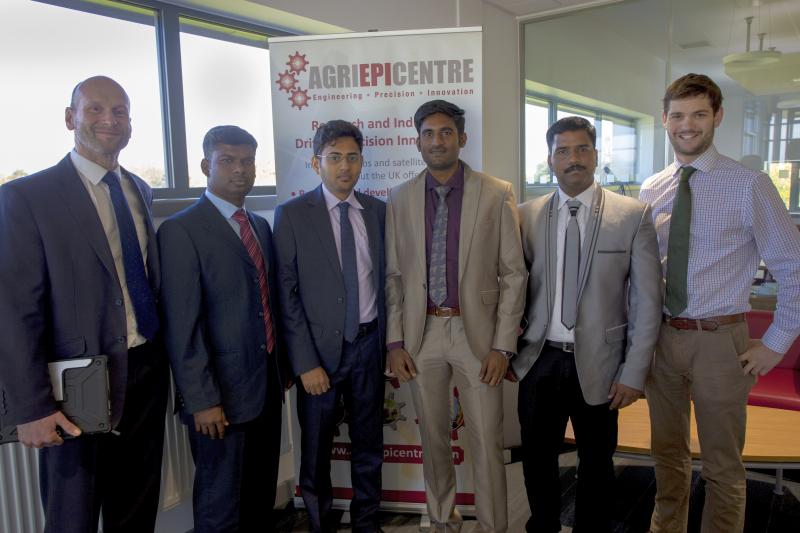
Harper Adams University has entered a new international collaboration with India-based Tractors and Farm Equipment (TAFE) to progress agricultural technology.
The collaboration will see the development of new solutions for the delivery of sustainable food production around the world.
TAFE, the world’s third largest tractor manufacturing company in terms of volume, has become the first business to take up residence in the Agri-EPI Centre Newport Hub, on Harper Adams University campus, to commence a major research and development project.
Agri-EPI Centre is one of the four national Centres for Agricultural Innovation created as part of the £17.7m UK government investment from the UK’s Strategy for Agricultural Technologies to help provide engineering and precision agriculture solutions for the agri-food industry.
The centres will help the UK turn agricultural innovation into commercial opportunities for UK businesses, encourage inward investment and improve farming practice.
Autonomous farming
The collaboration between TAFE, HAU and Agri-EPI will include joint research projects and programmes, publications and staff exchanges.
Research will be focused on agriculture, engineering and technology development programmes on autonomous farming and energy efficient implements, Unmanned Aerial Systems (UAS) and sensor technologies along with the Hands Free Hectare (HFH) project that will be implemented at JFarm India; TAFE’s adaptive agriculture research centre.
TAFE President & COO, Mr T R Kesavan said: “TAFE’s collaboration with Harper Adams and the Agri-EPI Centre is a reaffirmation of TAFE’s commitment to its vision of ‘Cultivating the World’ as it aims to combine integrated farming techniques with precision agriculture and engineering to develop sustainable farming models that work for both marginal and large farms.
“This collaboration will provide opportunities for developing a range of advanced training skills, learning and the promotion of international technology transfer and exchange.”
